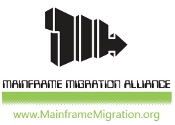UNIX Migrations
Although Unix is considered one of the dominant players in the operating system market, a number of Unix systems are becoming obsolete. Some Unix vendors have simply stopped supporting their offerings, sometimes just on certain hardware platforms, sometimes altogether. The reduction of support created a domino-like effect in which hardware vendors stopped enhancing their product lines and software vendors stopped porting newer versions of their products to those versions of Unix. Businesses have found that their “Open System” from only a few years ago, has now in fact become a legacy system.
While many of the major Unix vendors today continue to heavily support their offerings, the introduction of Linux changed the Open Systems landscape. Other businesses have simply changed strategic direction (such as switching to a Windows platform) which has necessitated their need to migrate from Unix.
For those businesses wanting to switch from one flavor of Unix to another, the process may seem trivial. But, in many cases it is not. Although both the target and source Unix are considered Open Systems, many vendors added differentiators to their offerings. A feature that may have been “standard” in one Unix may not exist on another. Other types of Unix migration issues include:
- Compiler differences
- Endian data storage issues
- System programs/utilities
- Shell differences
- System configuration
- Device support
- Comparable third-party software
For over 15 years, Datatek has been performing operating system platform migrations and developing software products for the major Unix vendors. If your business is losing its Unix vendor support, considering Linux as a cost-effective alternative, or switching to Microsoft’s .NET environment, contact a Datatek representative see how our technical and innovative solutions can solve your Unix migration needs.
System Migration Tour
More Information
- Migration Overview
- Migration Components
- Migration Steps
- Resources & White Papers
- Frequently Asked Questions
- Success Stories
Strategic Partners




How Can We Make This Website Better?
If you’ve discovered a mistake, an ambiguity, or that some important information is missing from this website, please let us know.
© Copyright Datatek, Inc. 2011-, All rights reserved. All trademarks belong to their respective owners.